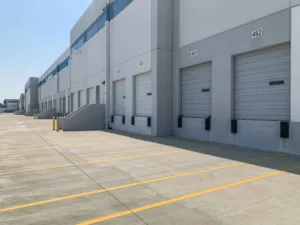Ever thought about the benefits of investing in self storage units? It can be a lucrative investment if you know what you’re doing. Before you sign on the dotted line, you’ve got to do your homework. Due diligence is the key to smart investing in self storage. You need to dig into the details to understand what’s really going on and find the golden opportunities. In this post, we’ll show you the ropes of self storage due diligence. You’ll learn how to analyze the market, assess the competition, evaluate a property’s financials, and spot the warning signs. Master these essential skills and you’ll be negotiating self storage deals like a pro in no time. Ready to take your self storage investing game to the next level? Let’s dive in.
Analyze the Local Self-Storage Market
To make a smart self-storage investment, you need to become an expert on the local market. Analyzing key factors like demand, competition, and rates in your target area is essential.
Check local self-storage rates on sites like SpareFoot or StorageFront and compare them to national averages. If rates in your city or neighborhood are significantly higher, that’s a good sign of high demand and potential for strong returns.
See what’s already available in the area and determine if there are any underserved segments like climate-controlled units or wine storage. Drive around and note how many facilities seem full or are expanding. All of this helps gauge how much extra space is actually needed.
Research population growth and business development in the area. Areas with lots of apartments, condos, or new companies moving in often have a greater need for self-storage.
Don’t forget to evaluate your competition. Note their location, features, online reviews, and pricing to determine what makes them successful—and where there’s opportunity to do even better.
By becoming an expert in your local self-storage market, you’ll gain key insights to help determine if an investment has real potential. And if you do decide to move forward, all this knowledge will help ensure your new facility meets the needs of customers in your area. With the right due diligence, you’ll be well on your way to a successful self-storage investment.
Evaluate the Property and Unit Mix
To determine if a self storage property is worth investing in, you need to thoroughly evaluate the units and how well they meet market demand. Some key things to consider:
- The mix of unit sizes. Look at the percentage of small, medium and large units. There should be a good balance that caters to both residential and commercial customers. If the mix is lopsided, it may be difficult to maximize occupancy and rental rates.
- Potential for expansion. See if there’s extra space to add more units or if the current layout can be reconfigured to add units. The ability to expand means more opportunity to increase cash flow over time.
- Accessibility and visibility. The location should be in an area that’s easy to get in and out of, and visible from main roads to attract tenants. Hidden or hard-to-access properties typically experience higher vacancy rates.
- Matching units to target customers. Analyze the local demographic to determine who the likely renters are, then evaluate if the units meet their needs. For example, if targeting residential tenants, there should be more smaller units versus mostly large commercial spaces.
- Rental rate assessment. Compare the property’s rates to competitors to make sure they’re in line with the local market. If rates are too high, it will be hard to fill units. If too low, you’re leaving money on the table. Rates should match the unit sizes and amenities offered.
By thoroughly evaluating the property and unit mix, you can determine if the investment has the potential to generate solid returns. And if there are any areas lacking, you’ll be in a good position to negotiate the best deal.
Review the Financials and Profitability
To determine if a self-storage facility will be a profitable investment, you need to analyze its financial performance and key profitability ratios.
Review Income Statements
Look at the income statements from the past 3-5 years to see how revenues and expenses have changed over time. Make sure revenues are increasing at a steady pace and expenses are well-managed. Declining revenues or ballooning costs are red flags.
- Revenues: Storage unit rentals should make up the bulk of revenues. Look for year-over-year increases of 3-5% or more.
- Expenses: The largest expenses are usually property taxes, insurance, utilities, and payroll. Make sure expense growth is in line with revenue growth.
Analyze Profitability Ratios
Profitability ratios measure how much profit a company generates from its revenues and assets. Some key ratios to consider include:
- Net Profit Margin: Net income / Total revenue. Aim for 30% or higher.
- Return on Assets: Net income / Total assets. Look for 5% or more.
- Occupancy Rate: Occupied units / Total units. At least 85-90% is ideal.
Compare these ratios to industry averages and the facility’s historical performance. Declining ratios could indicate issues with profitability or efficiency.
Review the Rent Roll
The rent roll provides details on all storage units, including their size, features, and current rental rates. Make sure rates are in line with the local market and units are rented at or above market prices. There should be a good mix of unit sizes to meet different customer needs.
By thoroughly analyzing the financial statements, profitability ratios, and rent roll of a self-storage facility, you can determine if the investment opportunity is truly profitable and built to last. Conducting comprehensive due diligence upfront will lead to smarter investment decisions and better returns down the road.
Assess Current and Future Competition
To succeed in self storage investing, you need to know your competition inside and out. Analyzing the competitive landscape will help you determine if the location you’re interested in can support another self storage facility and estimate how well your investment may perform.
Identify existing competitors
See what other self storage businesses currently operate in the area and learn as much as you can about them. Drive by their locations and note things like:
- Size and number of units
- Types of units offered (climate-controlled, drive-up, etc.)
- Current occupancy and rates
- Any recent expansions or upgrades
- Customer reviews and ratings
Evaluate future competitors
Look for any new self storage developments in the permitting or construction phase. New competitors can significantly impact your investment, so you’ll want to account for them in your financial projections and consider ways to differentiate yourself.
Find your competitive advantage
To stay ahead of the competition, determine what makes your self storage investment unique. Maybe you offer amenities other facilities lack, like covered loading areas, 24-hour kiosks, or truck rentals. An innovative twist can help you win over customers and charge premium rates.
Build a strong reputation
In an industry where many businesses are similar, establishing a solid reputation is key. Focus on providing the best customer experience through quality facilities, top-notch security, convenient features, and friendly service. Satisfied customers will become your best marketing tool through word-of-mouth and online reviews.
Conducting thorough due diligence on the competition will prepare you to make a smart self storage investment. Know the challenges you may face, but also look for opportunities to stand out in your market. With the right competitive strategy, you’ll be poised for success.
Meet the Property Management Team
When evaluating a self-storage property, the property management team is a key factor to consider. Property managers handle the day-to-day operations so you can earn passive income without constant oversight. Look for a team with experience managing self-storage facilities.
Reputation and Experience
An established property management company will have a proven track record of success. Check online reviews from current and past clients to gauge their reputation. Look for a company with at least 5-10 years of experience managing self-storage properties. They will be familiar with industry trends, local market conditions, and have refined efficient processes over time.
Fees and Insurance
Property management fees typically range from 5-10% of monthly revenue. Compare rates of different companies to find a fair price. Also, confirm what expenses are included in the fees, such as marketing, maintenance, and insurance costs. Make sure the company carries proper insurance like general liability, workers comp, and errors and omissions to protect you from potential legal issues.
Policies and Procedures
Review the company’s standard operating procedures to ensure they align with your investment goals. Things like unit pricing strategies, delinquent tenant policies, emergency response plans, and maintenance schedules should be clearly outlined. Strict policies and efficient procedures will maximize occupancy, minimize delinquencies, and uphold the value of your property.
Technology
A property management company that utilizes self-storage software will operate more efficiently. Things like online rent payments, automated billing, and customer relationship management systems streamline operations and provide better service to tenants. Ask about the specific products they use and how those tools benefit their clients.
By thoroughly evaluating potential property managers, you can find a team to trust with the day-to-day management of your self-storage investment. With the right group in place, you can earn steady income from your property with confidence.
Conclusion
So there you have it, the key ingredients for conducting effective due diligence on self-storage investments. While it may seem like a lot of work, doing your homework upfront is critical to finding properties that will generate solid returns over the long run. Remember, you’re not just buying a building – you’re buying an income stream. Do the research, understand what drives value in your target market, evaluate the numbers with a keen eye, and don’t be afraid to walk away from a deal that just doesn’t feel right. Master the art of due diligence and you’ll be well on your way to building a successful self-storage portfolio. The rewards of your hard work will pay off for years to come.





